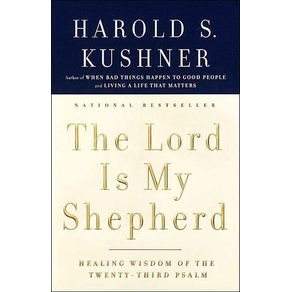LORD IS MY SHEPHERD, THE
Favoritar
De: R$ 177,00Por: R$ 123,90ou de
Preço a vista:R$ 123,90
Economia de R$ 53,10Calcule o frete:
Para envios internacionais, simule o frete no carrinho de compras.
Calcule o valor do frete e prazo de entrega para a sua região
Sinopse
Ficha Técnica
Especificações
| ISBN | 9781400033355 |
|---|---|
| Pré venda | Não |
| Peso | 214g |
| Autor para link | KUSHNER HAROLD S. |
| Livro disponível - pronta entrega | Não |
| Dimensões | 23 x 16 x 1 |
| Tipo item | Livro Importado |
| Número de páginas | 192 |
| Número da edição | REPRINT EDITION - 2004 |
| Código Interno | 235439 |
| Código de barras | 9781400033355 |
| Acabamento | PAPERBACK |
| Autor | KUSHNER, HAROLD S. |
| Editora | ANCHOR BOOKS |
| Sob encomenda | Sim |



